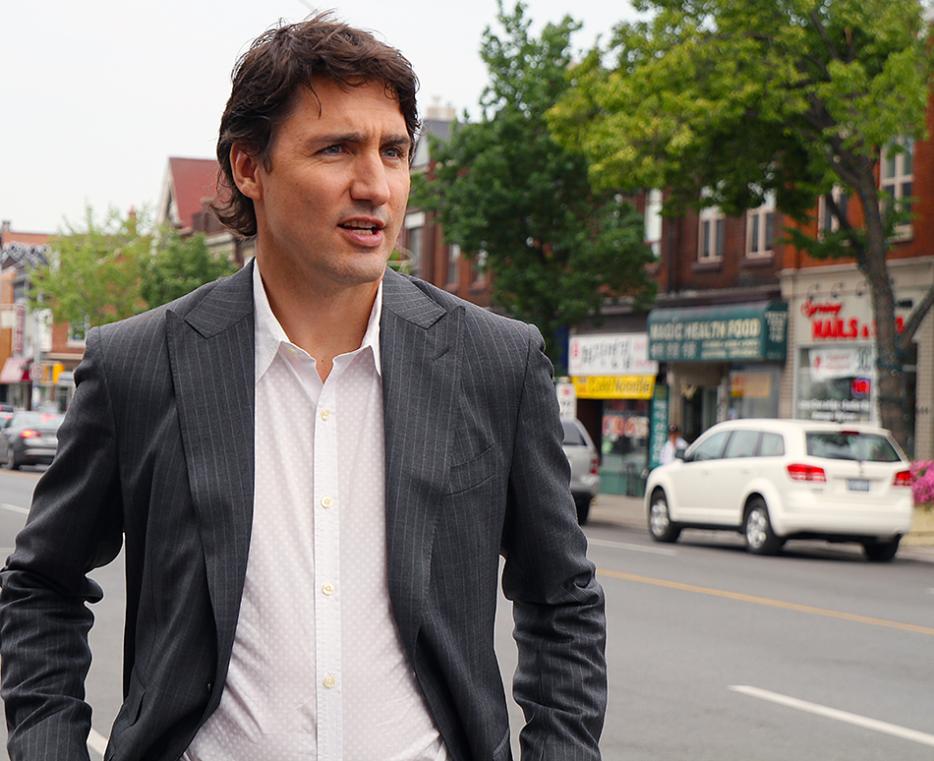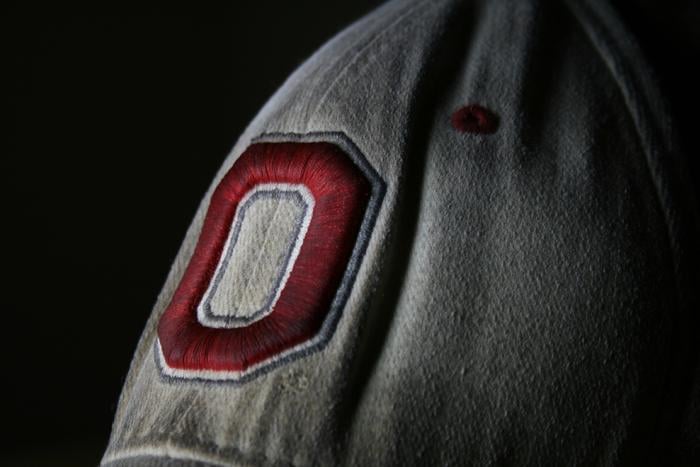What was important to us in 2015? Hazlitt’s writers reflect on the quiet reverberations of the year’s big issues, and the loud ring of its smaller ones.
Canadians have seldom eroticized political power, maybe because we like to pretend it only exists elsewhere. J. G. Ballard’s 1968 story “Why I Want to Fuck Ronald Reagan” imitated scientific papers: “In assembly-kit tests Reagan’s face was uniformly perceived as a penile erection. Patients were encouraged to devise the optimum sex-death of Ronald Reagan.” It’s hard to imagine anyone hallucinating psychosexual analysis of the charmless, managerial Mackenzie King, or Jean Chretien, who always seemed like he would prefer the parliamentary debate between a slamming car door and an enemy’s skull. Canada must be the only country to ever install a leader named Lester.
So it felt disorienting to look at the Internet on election night back in October and sense many thousands of people simultaneously Googling “Justin Trudeau dick print.” He did that Vogue shoot, entwined with Sophie Gregoire in a photo that weirdly made her look four feet tall. New York magazine rendered him a a paper doll, with a little Canada Goose jacket to paste over the prime ministerial abs. A friend of mine has it tacked up somewhere at her house in Oregon. She described Trudeau’s allure as “earnest athlete,” like “an American college football player who reads a lot.” (There are dissenters: another friend tweeted that “he looks like he abuses AXE body spray,” and probably “watches himself run his own hand through his hair during sex.”)
The elder Trudeau struck a few porny daddy poses next to his desk, but his charisma was flintier—the aloof intellectual in a buckskin jacket, hinting that he might be curious about socialism. The kind of politician who arrests hundreds of harmless Quebec nationalists without charges and then dismisses it with a deadpan quip. When he married the three-decades-younger Margaret Sinclair during Trudeaumania I, she was crushed to find the prime minister would rather read than go clubbing, or try anything else with her. Justin wouldn’t do that. He would come out and have precisely two drinks and only text his aides about the budget deficit if he thought you weren’t looking.
In the 1980s many male Tories spoke about Margaret Thatcher as a kind of mommy-domme, giving Britain its long-deferred punishment. Puncturing their little masonic circle made her an object of resentful awe. As riots wrecked Thatcher’s government, nobody could bear to say so to her face.
In a recent New York Times Magazine profile, Trudeau sounded self-conscious about his own image, straining to define when he’s “Prime Minister” and when he might be “Justin,” after suggesting the symbolic implications of his office furniture: “This is very much the last guy’s style, not mine. I’ll have a smaller desk in the corner and a bigger couch so we can sit down and actually have discussions.” But the favourite perversity of his Liberal Party is denial: Promise vaguely leftish rhetoric, then constrict whatever welfare state remains. The new world will be reviewed by an impartial panel of experts. The welcome of Syrian refugees, the inquiry into violence against aboriginal women, they’ve all been encouraging, but I don’t trust even that face enough to call him “Justin,” not least because it elides the dynastic surname. And yet skepticism still feels like a relief after ten years of the last guy, the collective paranoia the Conservatives incited and received.
Desire humiliates you, and so some of the most powerful channel it compulsively upwards. In the 1980s many male Tories spoke about Margaret Thatcher as a kind of mommy-domme, giving Britain its long-deferred punishment. Puncturing their little masonic circle made her an object of resentful awe. As riots wrecked Thatcher’s government, nobody could bear to say so to her face. Alan Hollinghurst’s novel The Line of Beauty describes the “heterosexual queenery” of an infatuated minister, with his “lolling, surely purple” bow tie:
It was one of the men standing directly behind the PM, like a showman, both protecting and exhibiting her. From time to time he cast covetous glances at her hair. His own grey curls were oiled back in deep crinkly waves, over which he passed a hand that barely touched. He was one of the few men who were wearing a white tuxedo, and his posture was a superb denial of a possible gaffe.
The unobjectified Stephen Harper was prime minister for my entire adult life. Days after we finally got rid of him, I moved to New York, with that windblown joy of someone standing inside the party’s vestibule. Just before the election, having followed the same route, Haley Mlotek rhetorically asked herself: “Will you admit to callously abandoning your neighbours, your family, the very lifeline that provided the privileges necessary to even reach out and touch such a Northern Hemisphere-specific dream, without so much as a culturally obligatory apology?” Other things got abandoned too. I date boys now? I clumsily group-texted earlier this year. I additionally date boys! Such a moment is supposed to be freeing or revelatory, yet it felt like another neurotic predicament: How to explain this to everybody in my life, or ideally avoid explaining it at all? Mostly I’ve opted to try the latter. In the mirror-maze of identity, I look for the resemblance between each fabulous distortion.
Maggie Nelson in The Argonauts, explaining why she once adopted the otter as her fursona, wrote: “It was important to me back then to feel, to be wily. To feel small, slick, quick, amphibious, dexterous, capable … But whatever I am, or have since become, I know now that slipperiness isn’t all of it. I know now that a studied evasiveness has its own limitations, its own ways of inhibiting certain forms of happiness and pleasure.” I love the idea of an endless becoming as much as the next dork, but we all seek congruence somewhere. When you’re lonely in some unfamiliar place, tumultuous flux and the private joke are both havens. “Canadian in America” being the least visible or persecuted minority imaginable, we share a lot of the latter. And it’s peculiarly funny to see news from home still get prefaced with a reference to Justin Trudeau’s curls or tattoos, as if they were the crucial shorthand for understanding an alien civilization. I come from a distant land, where the king is fuckable.






